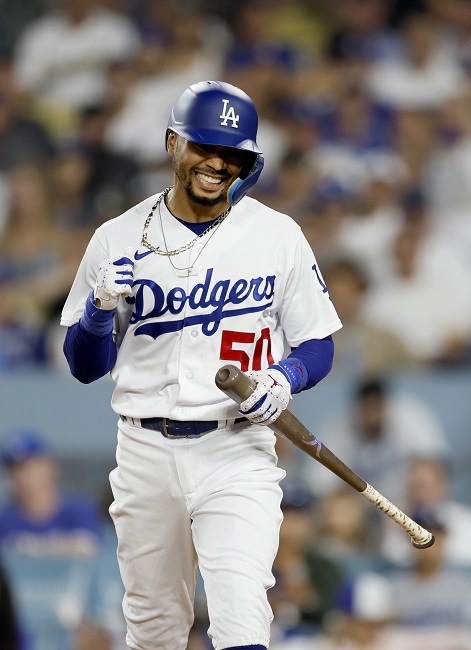
David Wharton
Los Angeles Times
LOS ANGELES — Now that baseball has been approved as one of several “new” sports for the 2028 Los Angeles Olympics, fans in Southern California might have a question or two.
Will Mookie Betts go for the gold? What about Shohei Ohtani?
And will the Summer Games commandeer Dodger Stadium for two weeks in the middle of the Major League Baseball season?
“We’ve had great conversations with MLB and the players union,” said Casey Wasserman, chairman of the LA28 organizing committee. “I have no doubt that both the league and its players are excited about the opportunity to compete.”
The International Olympic Committee voted to adopt LA28’s additional sports proposal during a session in Mumbai early Monday morning. The approved list also includes flag football, cricket, softball, lacrosse and squash.
As a perk for staging the Games, each host city is allowed to make several, one-time-only additions to the initial program of 28 sports such as gymnastics, basketball and track. Only if the newcomers do especially well will they be considered for a permanent spot.
Baseball, which has drifted in and out of the Olympics several times in recent history, would benefit from major-leaguers participating in 2028. Wasserman said: “We are excited to embark on game-changing collaborations” with professional leagues for all the new sports.
But getting pros into the Olympics is not so simple.
The NHL’s on-again, off-again relationship with the Winter Games has been marked by tense negotiations over interrupting the regular season and providing insurance against injury to million-dollar athletes.
For its part, MLB might not be eager to take a two-week hiatus in late July and early August. Commissioner Rob Manfred remained vague about Monday’s news, stating that it “is an important development for the ongoing global growth of our sport.”
The addition of any new sport can be tricky business, a tug-of-war among various stakeholders with different needs and agendas.
The local organizing committee wants to add events that will sell tickets and merchandise to fans in their host city. IOC officials prefer sports that will help expand their fanbase in places such as Asia, Africa and South America.
LA28 organizers and the IOC negotiated for months before Monday’s vote. Though Wasserman said “it was our process to manage,” the inclusion of cricket — with 2.5 billion fans worldwide but not so many in the U.S. — seems like an example of the compromises that can result from such talks. It helped that Major League Cricket has stated its desire to build a venue in Irvine, which would save organizers money.
The international federations for each candidate sport represent yet another facet of the process. Mindful of the millions to be generated from an Olympic appearance, they mount very public campaigns for inclusion.
Flag football got a big nudge from the NFL, which went so far as promoting the sport in a television commercial during last season’s Super Bowl.
“The NFL is committed to working together to strengthen flag football’s place in the Olympic movement long-term,” Commissioner Roger Goodell said in a statement on Monday.
Partnering with the Games isn’t as big a deal for football, given that its season doesn’t begin until the fall, and no one expects stars such as Patrick Mahomes to abruptly shift to the flag version of their sport.
Even if MLB players don’t participate in 2028, there remain questions about where the competition will be held. Dodger Stadium would seem like a natural choice, at least for high-profile games, but that could force the Dodgers into an extended road trip.
LA28 declined to comment on potential baseball venues.
The IOC also delivered news for a couple of Olympic staples that were at risk of being dropped. Members voted to include weightlifting, beset by widespread use of performance-enhancing drugs, and modern pentathlon, which has attempted to boost its flagging popularity by swapping out the equestrian portion for an “American Ninja Warrior”-style obstacle course.
The news was not as positive for boxing, whose status remains on hold while officials wrestle with judging and leadership controversies.
Even at a time when the Olympics are fighting to stay relevant and attract a new generation of fans, the addition process for the 2028 Summer Games showed how valuable inclusion can be for sports outside the movement.
As World Lacrosse president Sue Redfern said: “There is no greater designation than to be recognized as an Olympic sport.”
©2023 Los Angeles Times. Visit latimes.com. Distributed by Tribune Content Agency, LLC.

